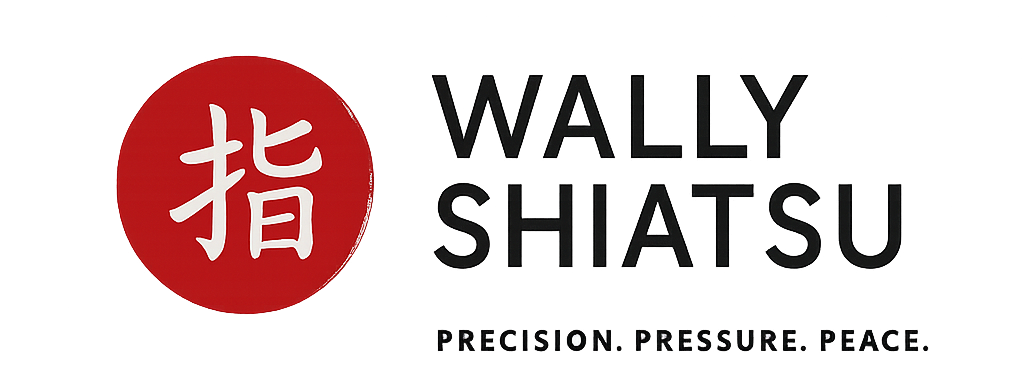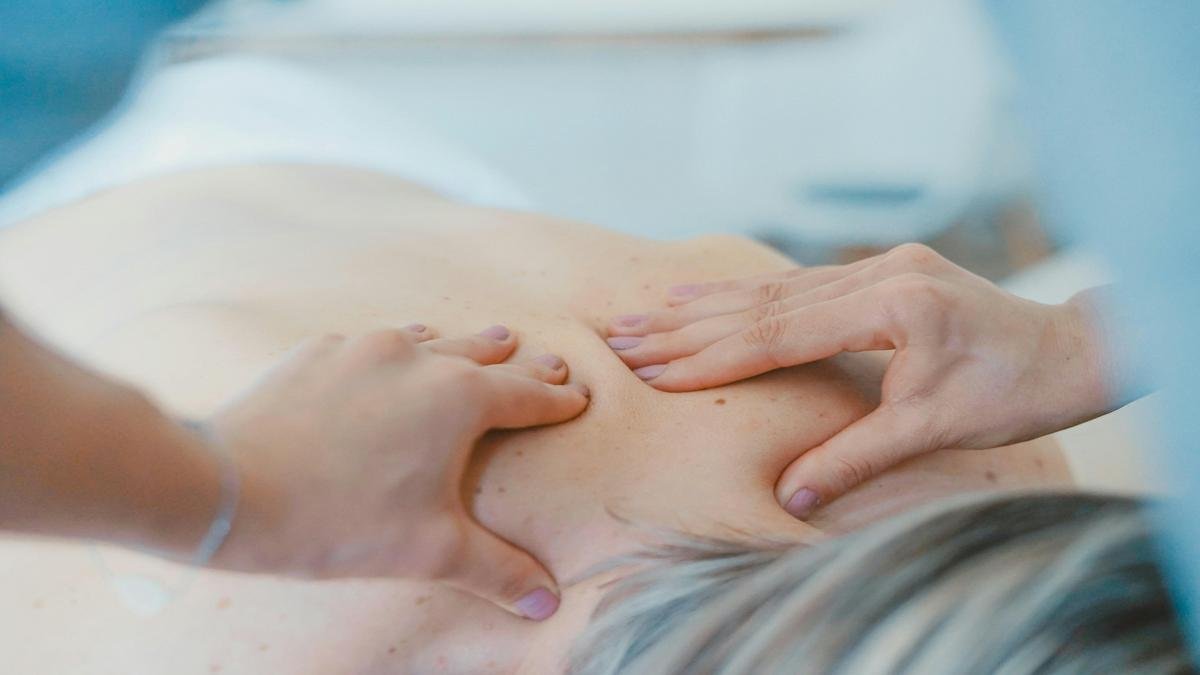Understanding Swedish Massage Techniques
Key Principles of Swedish Massage
Swedish massage is a popular form of bodywork that focuses on relaxation and stress relief. It involves several key principles:
- Long strokes: These strokes help to relax the muscles and improve overall blood flow.
- Kneading: This technique targets deeper muscle layers, easing tension and promoting flexibility.
- Friction: Rubbing motions are used to break down knots and enhance circulation.
- Vibration: Gentle shaking can stimulate the nervous system and promote relaxation.
- Percussion: Light tapping helps to invigorate the body and increase energy levels.
Each of these techniques plays a vital role in delivering a soothing experience that rejuvenates both the body and mind.
Benefits of Swedish Massage for Circulation
Swedish massage is well-known for its ability to enhance circulation. Improved circulation leads to better oxygen flow and nutrient delivery throughout the body, which is essential for overall health. Here are some benefits:
- Increased blood flow: This helps in the removal of toxins and waste products from the muscles.
- Reduced muscle soreness: Enhanced circulation can alleviate pain and stiffness.
- Improved immune function: Better circulation can boost the immune system, helping the body fight off illnesses.
- Enhanced recovery: Athletes often use Swedish massage to speed up recovery times after intense workouts. For more insights on the benefits of massage therapy, consider exploring the incredible benefits of massage therapy.
How Techniques for Effective Swedish Massage Improve Circulation
The techniques for effective Swedish massage to improve circulation are designed to work together seamlessly. Each method contributes to better blood flow and overall wellness. Here’s a table to highlight how these techniques impact circulation:
| Technique | Impact on Circulation |
|---|---|
| Long strokes | Promotes blood flow and relaxation |
| Kneading | Releases tension and improves flexibility |
| Friction | Breaks down knots, enhancing blood flow |
| Vibration | Stimulates the nervous system |
| Percussion | Invigorates the body and boosts energy |
By applying these techniques, a massage therapist can create a tailored experience that not only relaxes the client but also supports their circulatory health.
The Role of Massage Therapy in Circulatory System Health
How Massage Therapy Enhances Blood Flow
Massage therapy plays a significant role in boosting blood circulation. Through various techniques, it promotes the movement of blood throughout the body. When a massage is performed, pressure is applied to the skin and underlying tissues. This pressure helps to dilate blood vessels, allowing blood to flow more freely.
For example, a gentle Swedish massage can stimulate the lymphatic system, which helps remove toxins and waste from the body. As a result, it encourages better oxygen delivery to muscles and organs. This process not only aids in recovery after physical activities but also supports overall health.
Importance of Circulatory System Health
A healthy circulatory system is essential for overall well-being. It ensures that oxygen and nutrients reach every part of the body. When circulation is poor, it can lead to various health issues, such as fatigue, muscle cramps, and even more serious conditions like heart disease. For a deeper understanding of how different massage techniques can be beneficial, check out exploring different massage techniques.
Here are some key points on why circulatory system health matters:
- Nutrient Delivery: Blood carries essential nutrients to cells.
- Waste Removal: It helps remove waste products from metabolism.
- Temperature Regulation: Blood flow helps maintain body temperature.
- Immune Function: A healthy circulatory system supports immune response.
Techniques for Effective Swedish Massage and Their Impact on Circulatory Health
Swedish massage includes several techniques that are particularly beneficial for circulation. These techniques include:
| Technique | Description | Impact on Circulation |
|---|---|---|
| Effleurage | Long, sweeping strokes to warm up the muscles | Increases blood flow |
| Petrissage | Kneading motions that relieve tension | Enhances venous return |
| Friction | Rubbing movements to target knots | Stimulates localized circulation |
| Tapotement | Rhythmic tapping that invigorates muscles | Boosts overall blood flow |
| Vibration | Shaking movements that relax muscles | Promotes relaxation and circulation |
Using these techniques for effective Swedish massage to improve circulation can lead to better health outcomes. When performed regularly, these methods can help maintain a healthy circulatory system, reducing the risk of complications.
Techniques for Effective Swedish Massage to Reduce Muscle Tension
Identifying Muscle Tension Points
To effectively relieve muscle tension, a massage therapist first needs to identify the key tension points. These areas often include the neck, shoulders, lower back, and thighs. Tension can build up due to stress, poor posture, or repetitive movements. By using their fingers to apply gentle pressure, the therapist can pinpoint knots and tight areas that need attention.
Techniques for Muscle Tension Relief
Several techniques can be employed during a Swedish massage to alleviate muscle tension:
- Effleurage: This technique involves long, gliding strokes that help to warm up the muscles and promote relaxation.
- Petrissage: This method uses kneading motions to lift and squeeze the muscles, which increases blood flow and relieves tightness.
- Friction: By applying deeper pressure in circular motions, the therapist can break down knots and improve flexibility.
- Tapotement: Light tapping or percussion can stimulate the muscles and invigorate the body.
| Technique | Description | Benefits |
|---|---|---|
| Effleurage | Long, gliding strokes | Warms up muscles, promotes relaxation |
| Petrissage | Kneading motions | Increases blood flow, relieves tightness |
| Friction | Deep pressure in circular motions | Breaks down knots, improves flexibility |
| Tapotement | Light tapping or percussion | Stimulates muscles, invigorates body |
The Connection Between Muscle Relaxation and Improved Circulation
Muscle relaxation is closely linked to improved circulation. When muscles relax, blood can flow more freely, delivering oxygen and nutrients to the tissues. This process helps to flush out toxins and reduce inflammation, leading to enhanced overall health. For instance, after a session of Swedish massage, clients often report feeling lighter and more energetic. This is because the body is functioning optimally, thanks to the increased blood flow and reduced tension.
Incorporating Relaxation Techniques in Swedish Massage
Importance of Relaxation in Massage Therapy
Relaxation plays a crucial role in massage therapy. When clients are relaxed, their bodies respond better to treatment. Tension melts away, allowing the therapist to work more effectively. The benefits of relaxation can be felt not just during the massage but also afterwards. Clients often leave feeling lighter and more at ease. This state of calm can lead to improved mental clarity and physical health. To enhance your well-being, consider the power of relaxation.
Techniques for Effective Relaxation During Massage
To achieve relaxation during a Swedish massage, therapists can use several effective techniques:
- Deep Breathing: Encouraging clients to take deep breaths helps lower stress levels. This simple act can set the tone for the entire session.
- Soothing Music: Playing soft, calming music creates a peaceful environment. It can help clients let go of their worries.
- Warm Oils: Using warm massage oils makes the experience more enjoyable. It also helps relax tight muscles.
- Gentle Lighting: Soft lighting can create a cozy atmosphere. This helps clients feel safe and secure.
- Mindfulness: Guiding clients to focus on their body and the sensations they feel promotes relaxation.
How Relaxation Techniques Enhance Circulatory Benefits
Relaxation techniques not only calm the mind but also boost circulation. When clients are relaxed, their blood vessels widen. This allows for better blood flow throughout the body. Enhanced circulation brings more oxygen and nutrients to cells, promoting healing and overall health.
| Technique | Circulatory Benefit |
|---|---|
| Deep Breathing | Increases oxygen flow to the blood |
| Soothing Music | Reduces stress, lowering blood pressure |
| Warm Oils | Eases muscle tension, improving blood flow |
| Gentle Lighting | Creates a calming effect, enhancing circulation |
| Mindfulness | Encourages awareness, promoting relaxation |
The Benefits of Lymphatic Drainage Massage
Understanding Lymphatic Drainage
Lymphatic drainage massage is a specialized technique that focuses on the lymphatic system. This system plays a crucial role in the body’s immune response and fluid balance. By gently manipulating the skin, a therapist can help move lymph fluid, which carries waste and toxins away from tissues. This type of massage is known for its relaxing and soothing effects, making it a popular choice for those looking to boost their health.
Techniques for Effective Swedish Massage in Lymphatic Drainage
Swedish massage techniques can be adapted for lymphatic drainage to improve circulation effectively. Here are some key techniques that can be used:
- Effleurage: This involves long, sweeping strokes that promote relaxation and help move lymph fluid.
- Petrissage: This kneading technique helps to stimulate circulation and can be effective in areas where lymph nodes are located.
- Tapotement: Light tapping can invigorate the body and enhance lymphatic flow.
These techniques, when performed correctly, can lead to significant improvements in overall health.
How Lymphatic Drainage Supports Circulation
Lymphatic drainage massage is essential for supporting circulation in various ways:
| Benefit | Description |
|---|---|
| Reduces Swelling | Helps decrease fluid retention and swelling in tissues. |
| Boosts Immune Function | Enhances the body’s ability to fight infections by promoting lymph flow. |
| Increases Relaxation | Provides a calming effect that can lower stress levels and improve overall well-being. |
| Improves Skin Health | Promotes better circulation, leading to healthier-looking skin. |
By integrating these techniques into a regular routine, individuals can experience a notable enhancement in their circulatory health.
Stress Reduction Techniques in Swedish Massage
The Link Between Stress and Circulation
Stress can have a significant impact on the body, especially on circulation. When a person experiences stress, their body goes into fight-or-flight mode. This response causes blood vessels to constrict, which can lead to poor circulation. Reduced blood flow can make it harder for the body to deliver oxygen and nutrients to vital organs. This is where Swedish massage comes into play.
By using gentle strokes and kneading techniques, Swedish massage helps to relax the body and improve blood flow. As a result, stress levels decrease, and circulation improves. This connection between stress and circulation is crucial for overall wellness.
Techniques for Effective Stress Reduction During Massage
Several techniques in Swedish massage are tailored to reduce stress effectively. Here are some key methods:
- Effleurage: This technique involves long, smooth strokes that relax the muscles and calm the mind. It encourages blood flow and is often used at the beginning of a session.
- Petrissage: This method includes kneading and squeezing the muscles. It helps release tension and promotes relaxation.
- Friction: By applying pressure to specific areas, friction helps break down knots and tightness in the muscles, which can be a source of stress.
- Tapotement: This technique uses rhythmic tapping to stimulate circulation and invigorate the body. It can energize the nervous system while still providing relaxation.
Each of these techniques works together to create a harmonious experience that not only calms the mind but also improves circulation.
The Role of Stress Reduction in Circulatory Health
Reducing stress is essential for maintaining circulatory health. When stress is lowered through massage, the body can function more effectively. Improved circulation means better delivery of oxygen and nutrients, which supports overall health.
| Benefit of Stress Reduction | Impact on Circulation |
|---|---|
| Decreased muscle tension | Improved blood flow |
| Lowered heart rate | Enhanced oxygen delivery |
| Relaxed mind | Better nutrient absorption |
In summary, stress reduction techniques in Swedish massage play a vital role in enhancing circulatory health. By focusing on relaxation and circulation, these techniques help individuals feel better both physically and mentally.


